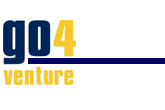
Welcome to the latest edition of the Go4Venture Monthly European TMT Bulletin, featuring our proprietary Headline Transaction Index (HTI) of investment activity, as well as a quick summary of VC & PE-backed TMT M&A exits of $50 million or more.
Investments
November 2012 has been yet again another month of progress. The momentum that we’ve seen building since summer 2012 is gathering pace, with monthly numbers ahead by close to 40% in value compared to the same month last year (20% by number of transactions). We are now at a 25% uplift year-to-date, both in number and value, compared to 2011.
Once more, the month’s activity gives a great snapshot of the forces at work:
- Larger transactions are becoming more common – Two landmark transactions (more than €20mn) vs. only one last year (hence also the growing discrepancy between the increase in value and in number of deals).
- Late-stage is dominating the investment activity – Late-stage and Series C transactions represent two thirds of the activity by value.
- Internet is all there is, in its various guises – Internet services of all kinds, digital media pumped through the web and mobile channels, and of course various SaaS plays, increasingly leveraging the vast amount of data collected when servicing all connected users (“big data”). There is not much left for the rest, with medtech and cleantech probably being the (much smaller) exceptions.
- US investors are taking the lead in Europe – Of the eight Large HTI transactions profiled (> £5mn, €7.5mn or $10mn), no less than 75% are led by a US investor. Interestingly these are not necessarily VC funds (Benchmark Capital, Kleiner Perkins and Scale VP), but also private equity (PE) and growth equity funds (Chernin Group, Goldman Sachs and SilverLake). In short, US investors are using their financial firepower to elbow out local venture funds. The risk of course is that Limited Partners (LPs)’ restrained (and that is a euphemism!) attitude towards European funds perpetuates a situation of underperformance compared to their US peers.
- Regional and early-stage funds, because they are heavily subsidised (directly or indirectly via tax benefits for individual investors), or because the principals put up their own money (see the example of Creathor Venture last month where management provided 20% of the €80mn). This month:
- Longwall Ventures was launched, targeting UK small businesses: this is a £40mn Enterprise Capital Fund (ECF), of which £25mn (two thirds) is provided by the UK State.
- Viveris Management hit the first closing of its €80mn regional growth equity fund, targeting companies in the South-East of France.
- Growth Equity funds, such as Parcom Deutsche Private Equity (PDPE), which launched its second €300mn growth equity fund. PDPE started in 2007 with the backing of Parcom Capital, the private equity subsidiary of Dutch investment banking group ING.
- Corporate Venture Capital (CVC) funds, such as Tate & Lyle which announced its second VC fund to invest in food opportunities with £30mn set aside. This follows on from its £25mn initial fund started in 2006.
Continuation of a theme: flat TMT M&A environment, globally and also for VC/PE-backed European TMT deal activity.
Generally, the relentless consolidation of TMT remains unabated, for instance in:
- Enterprise Resource Planning (ERP) – RedPrairie (backed by PE firm New Mountain) continues to scoop up smaller players, this time veteran mid-market ERP firm JDA Software (which itself had absorbed the former Supply Chain Management (SCM) stars of the 1990s, Manugistics and i2 Technologies) for $1.7bn.
- Internet Services, demonstrating the sector’s growing maturity – Acquisition of Kayak, a travel price comparison engine, by Priceline, an online hotel reservations leader, for close to $1.5bn.
- Communications Equipment, as a new generation of technologies challenges the established players – Cisco buying Meraki, a cloud networking hardware provider, for close to $1bn.
Interestingly there were a couple of other large deals which were great successes of European innovation but grown quite independently from VCs:
- LMS International, a bootstrapped 1980 spin-off from the European University of Leuven, at times supported by local VC fund GIMV which eventually sold their position in 2005 to PE fund NPM Capital (which is getting the real upside).
- Immoweb.de, picked up for €128mn by Axel Springer Digital Classifieds, the JV between Axel Springer and General Atlantic. Immoweb was originally financed by Produpress, a publishing business owned by the Rousseaux family.























































Please login or sign up to comment.
Commenting guidelines